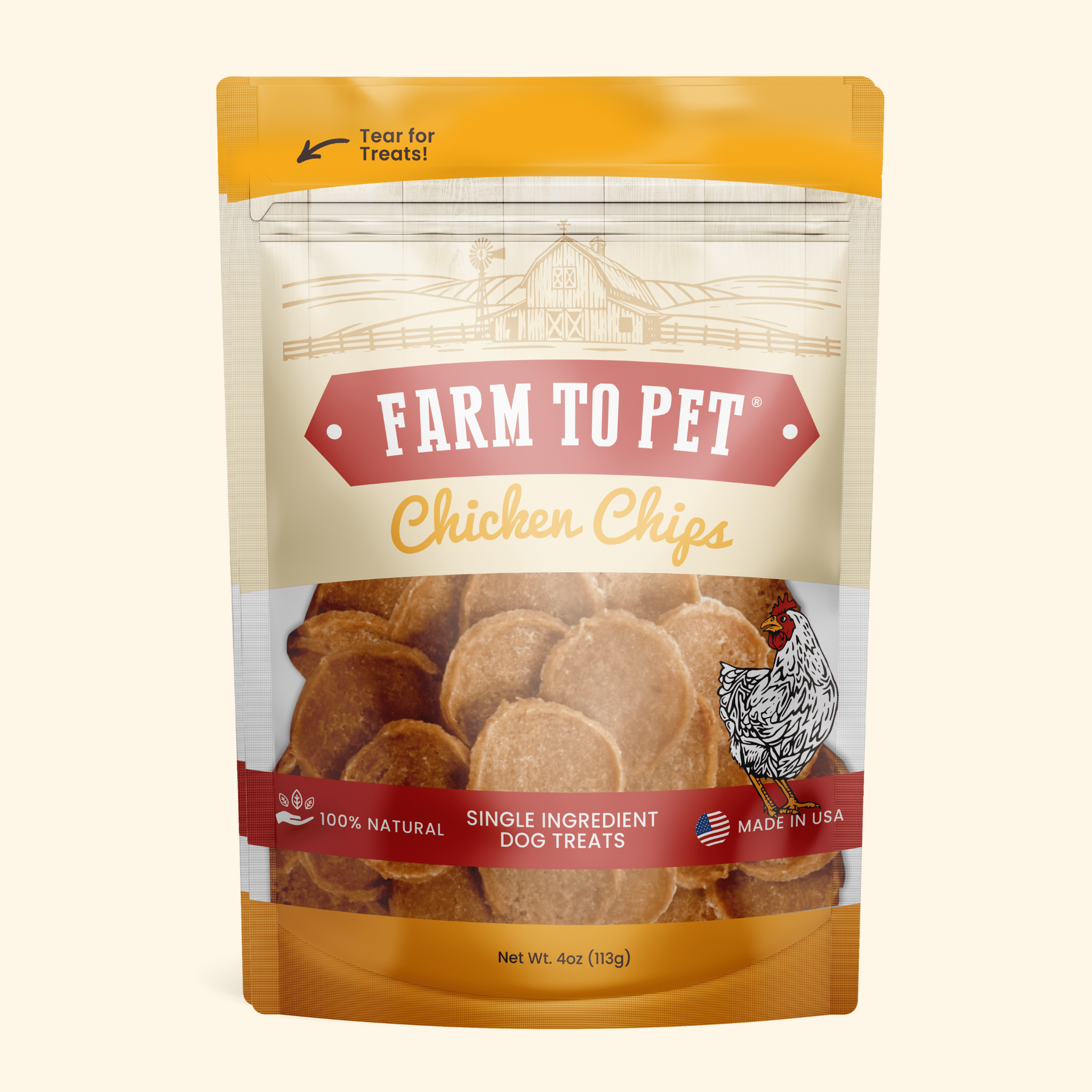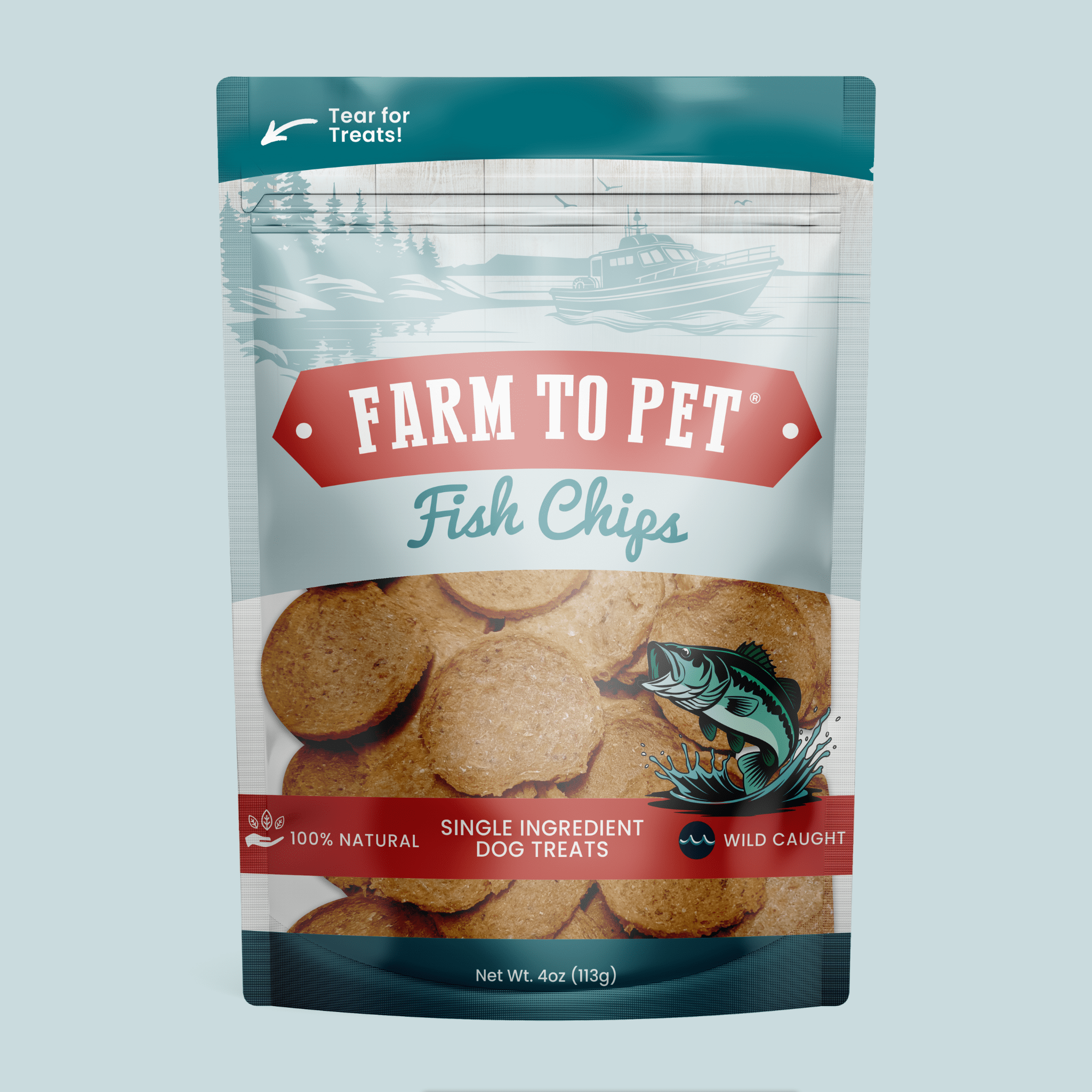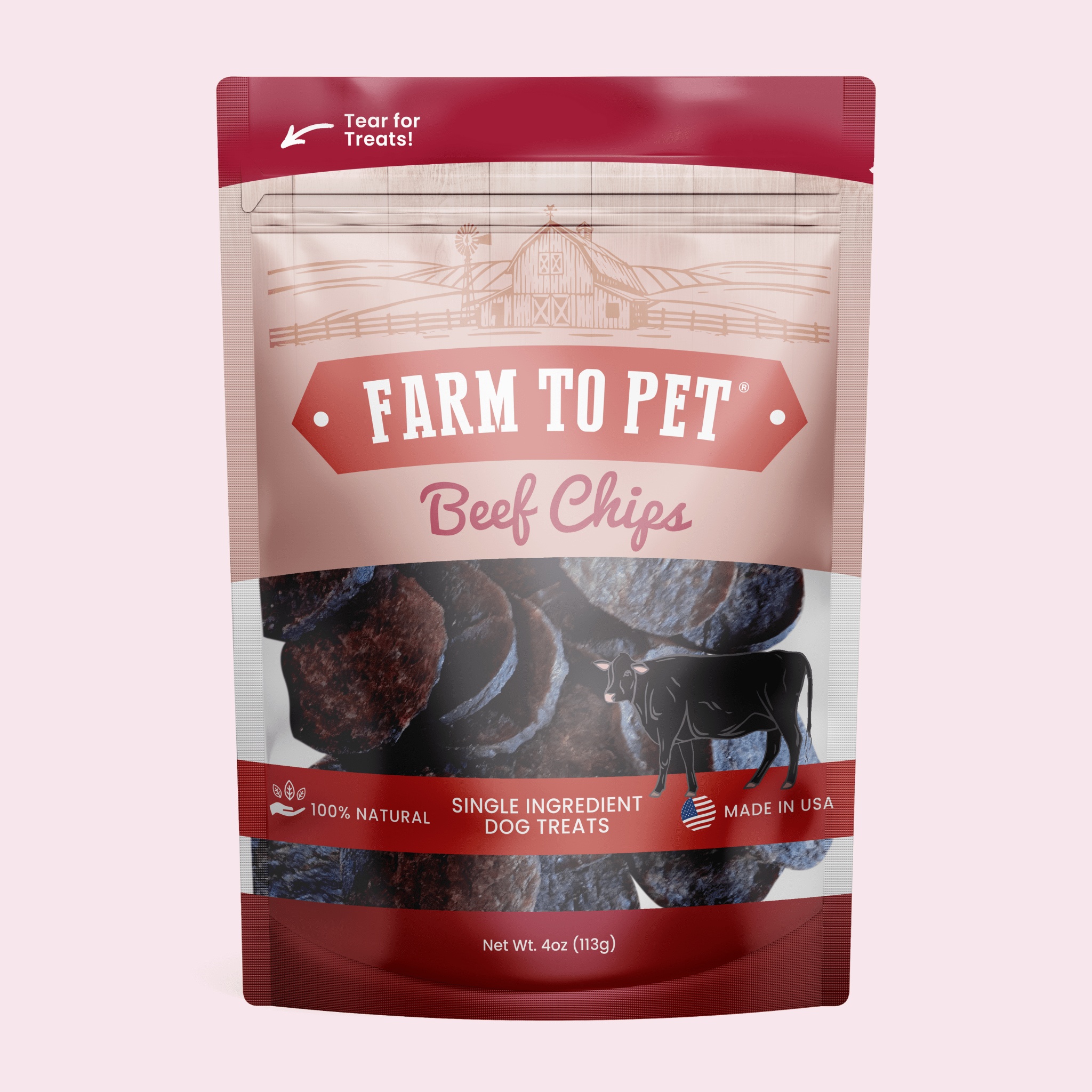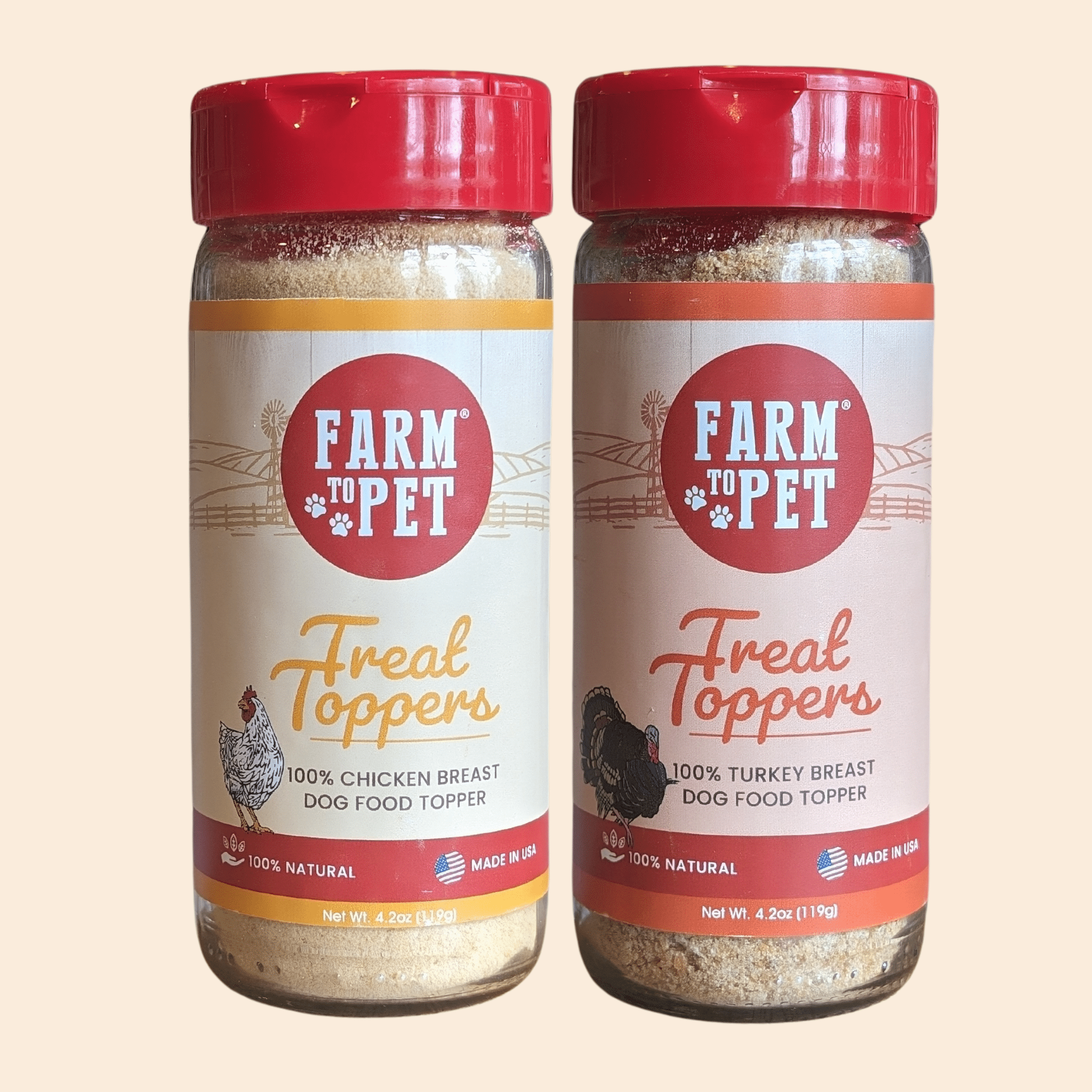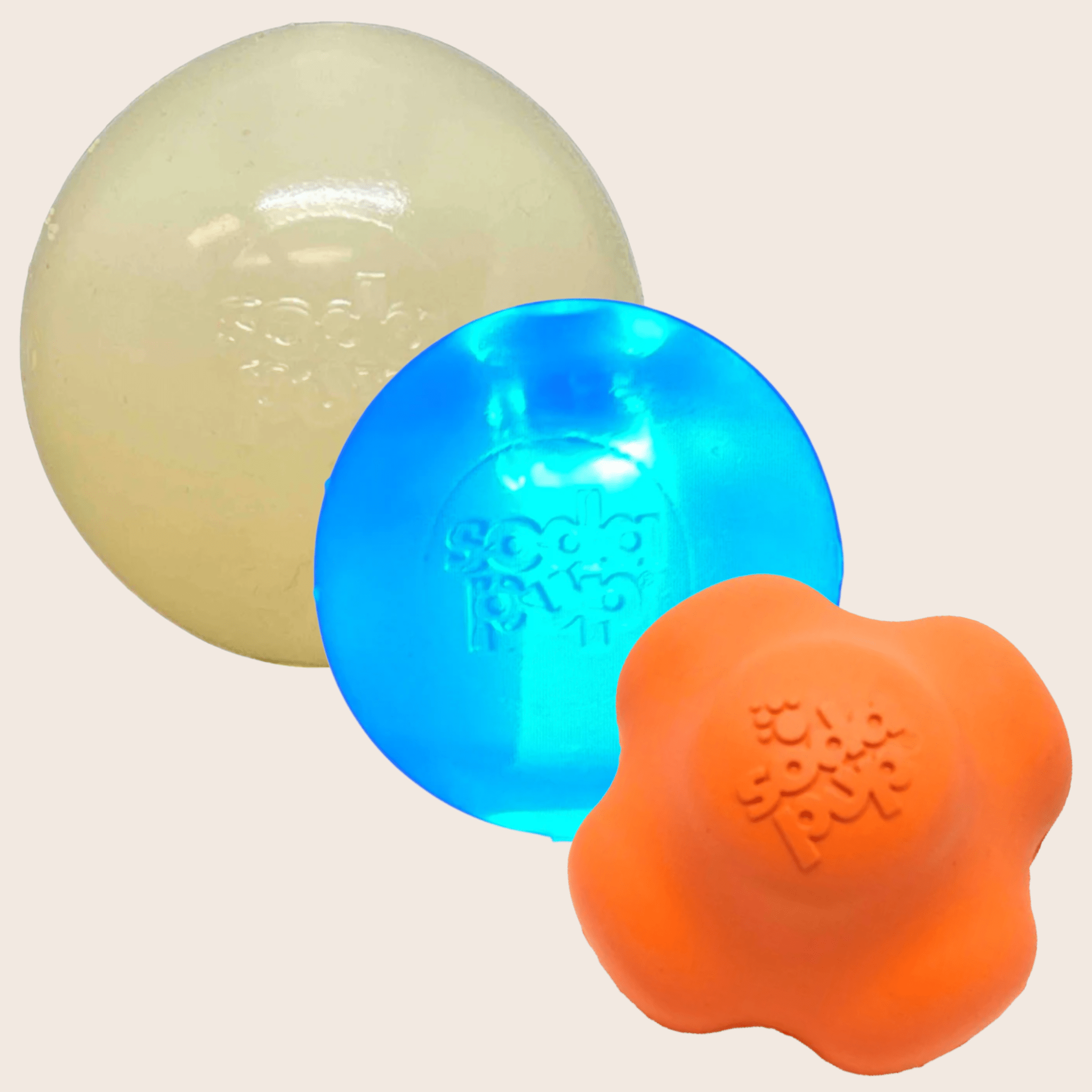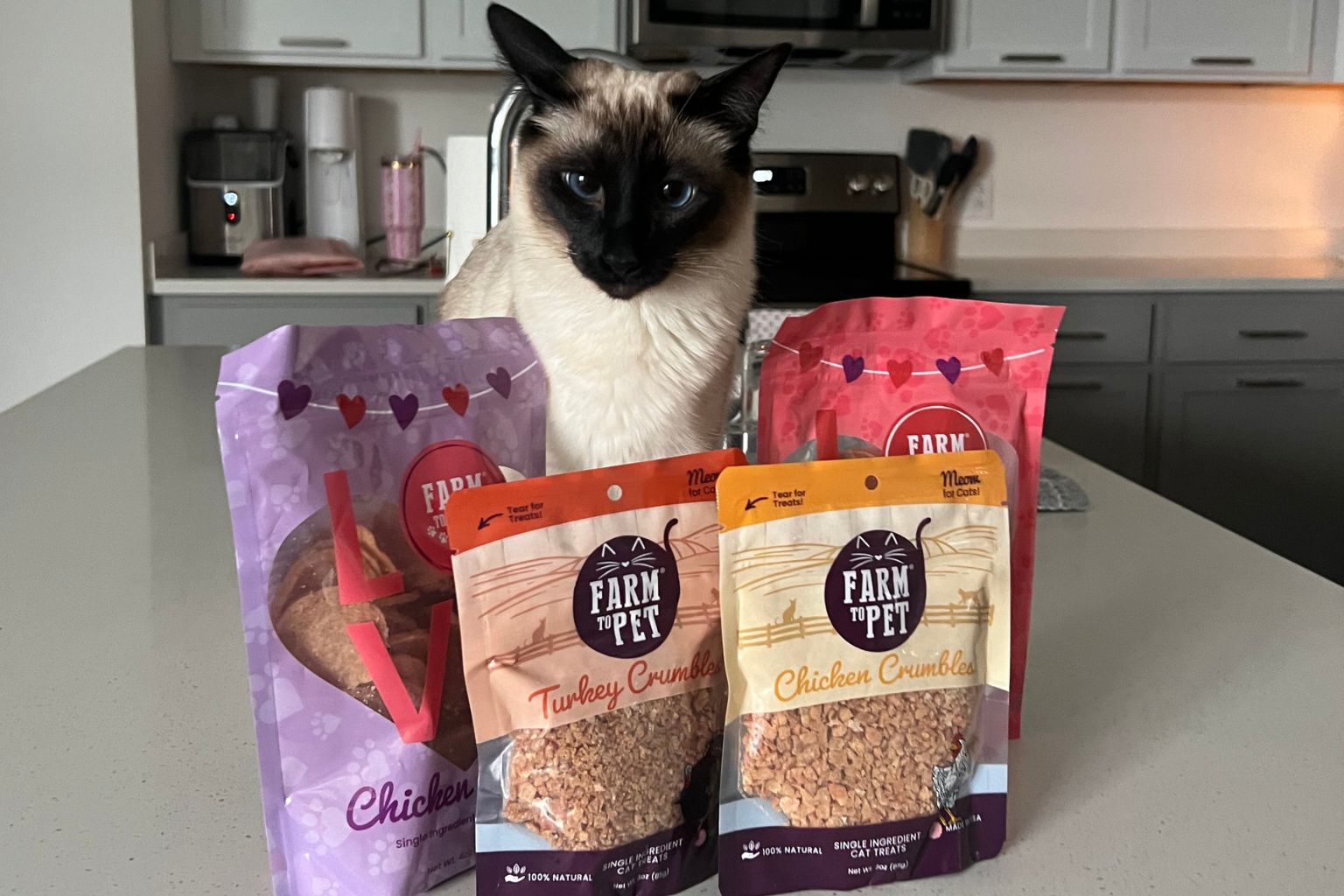Pet parents know that our dogs and cats love protein, but many don’t realize how much they need it. Both canine and feline fur-riends derive great nutritional benefits from animal-based proteins and the essential amino acids, vitamins and minerals they provide. However, because cats are obligate carnivores, they actually cannot survive, let alone thrive, without it.
Luckily, Farm to Pet healthy pet treats exist! Made of 100% farm-direct human-grade protein sources, our Crumbles healthy treats for cats are an excellent source of feline nutrition, providing a delicious and powerful boost of protein that even the most finicky cats love to crunch. Read on to learn more about what the term “obligate carnivore” means, the function of protein in an obligate carnivore’s system, and the best proteins you can serve your own furry obligate carnivores - in the form of Farm to Pet healthy cat treats, of course!
What Is an Obligate Carnivore?

Most of us probably know that a carnivore is a meat eater. But what about an obligate carnivore? The common thread between the two is of course a diet of animal protein. In addition to the macronutrient protein, animal proteins like chicken, beef, fish and eggs contain twenty different amino acids, making them "complete proteins." While there are some amino acids that can be produced by humans and animals by internal metabolic processes, there are some that neither can "synthesize" and as such much obtain through their diets. These are known as essential amino acids, because they are indeed essential to proper health and body function.
There are eleven essential amino acids for cats that they cannot produce themselves and must get from food. Similarly, there are ten for dogs, and nine for humans. However, while dogs and humans can live without these essential amino acids, even though they will not thrive or reach optimal health without them for any extended period, obligate carnivores like cats actually cannot survive without them. Hence, “obligate” since they are obligated to eat animal proteins to survive. If they can’t get complete proteins from their diet, obligate carnivores will leech it from their own bodies and face starvation, even if they have access to other nutrition sources like carbohydrates or plant proteins in the meantime.

What Does Protein Do for Obligate Carnivores?
Unlike omnivores or non-obligate carnivores who rely heavily on carbohydrates for energy, cats and other obligate carnivores use protein as an energy source as well as for essential nutrients. In fact, cat digestive systems are unable to efficiently break down plant matter and turn it into energy. Instead, their shorter digestive tracts, specialized liver enzymes, and even their teeth and saliva are designed to process animal proteins for energy and to maintain stable blood sugar levels.

In addition, protein is essential for building and repairing body tissue, including muscles, skin, hair, and cartilage, in all carnivores. Protein and the amino acids it contains also help generate other proteins, enzymes, hormones, and antibodies that are vital to support various bodily functions. In the case of obligate carnivores like cats, animal protein is required to access essential amino acids they need - especially taurine and arginine - to rid their bodies of cellular waste, maintain good vision, and support cardiovascular and immune system health, just to name a few.
What Are the Best Proteins for Obligate Carnivores?
As mentioned above, poultry, meat, fish, eggs and even cheese and yogurt are complete proteins for cats, containing all eleven amino acids that their systems require. However, most cat parents agree their feline fur babies favor meats of all kinds! They are also the most efficient sources of essential amino acids, containing higher levels than non-meat proteins. Here is how the proteins available in Farm to Pet’s healthy cat treats stack up in terms of amino acids as well as overall nutrition:
Chicken: A good source of the amino acids leucine and lysine, which support immune and respiratory health in cats, chicken breast is also rich in B vitamins, choline, selenium and potassium
Turkey: The best source of taurine and arginine, two amino acids cats must ingest for cardiovascular and ocular health, turkey is a good source of vitamin D and magnesium as well
Beef: In addition to a good balance of amino acids, beef also provides high levels of iron, choline and vitamin B12 to support bone and nerve health
Fish: The walleye, also called pike, in our single-ingredient treats is rich in vitamin A, calcium and copper, as well as an excellent source of omega 3 fatty acids
How Much Protein Does a Cat Need?

As obligate carnivores, cats must get the majority of their calories from animal protein in order to survive and thrive. Most experts agree that a healthy cat diet is made up of about 50-60% protein, 25-35% fat, and less than 15% carbohydrates. How much cats should eat per day varies according to their size, age and gender, but the average cat usually needs about 200 calories per day. At 4 calories per gram, that can be up to 30 grams of protein a day - quite a lot for a relatively small fur baby! Farm to Pet’s pure protein cat treats and pet food toppers are excellent ways to boost your cat’s protein intake without added fat, sodium, sugars or other carbs.
Much Obliged! Your Obligate Carnivore Will Thank You for these Healthy Cat Treats
As you can see, animal protein is more than just part of a healthy cat diet. As obligate carnivores, animal protein is a healthy cat diet! Complete proteins, especially beef, chicken, turkey, fish, are the only way cats can get the essential amino acids they need to survive and thrive - not to mention a host of other vitamins, minerals and nutrients that support overall pet health.
And because each of these protein sources provides a different spectrum of nutrients, rotating them in your pets’ diets does more than just give picky pets more variety and prevent flavor fatigue. Changing up the proteins in their healthy pet foods and treats allows furry friends to benefit from a more complete nutritional profile, supporting the health and function of so many of their bodily functions while giving them flavors they love. Whether your kitty loves the crunch of our Crumbles cat treats and original protein chips, or the lickable goodness of our Treat Topper pet food toppers, you can feel good about giving them the human-grade protein their feline constitutions need to thrive!

